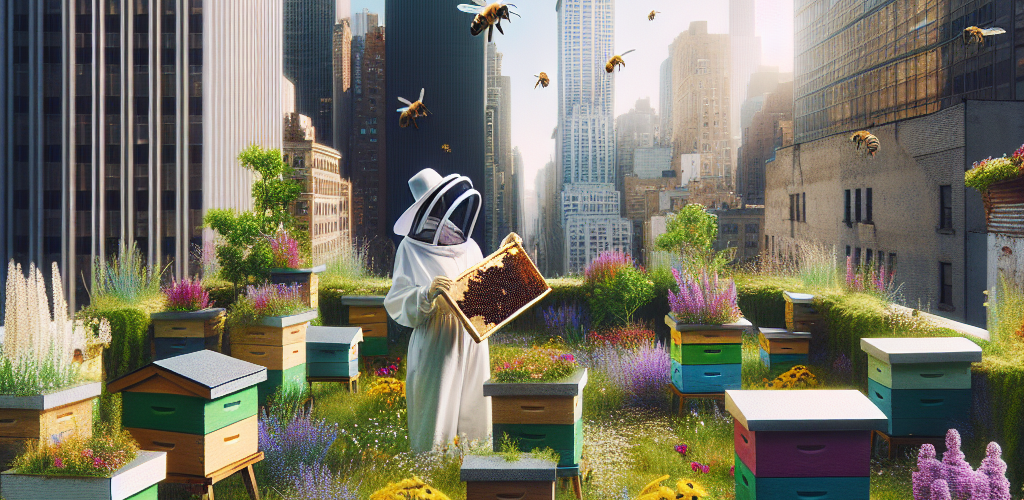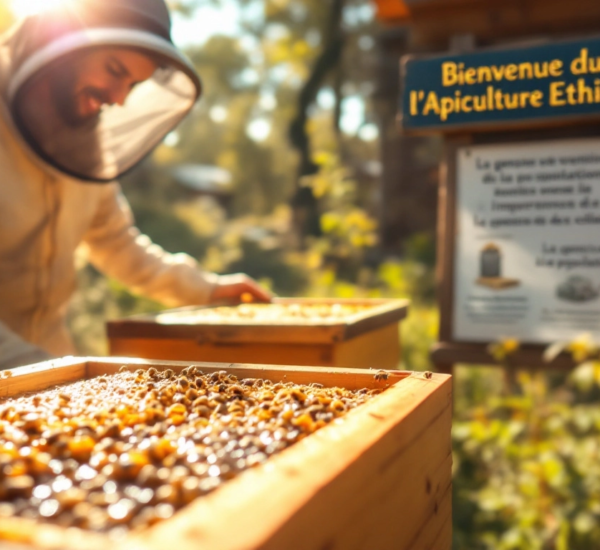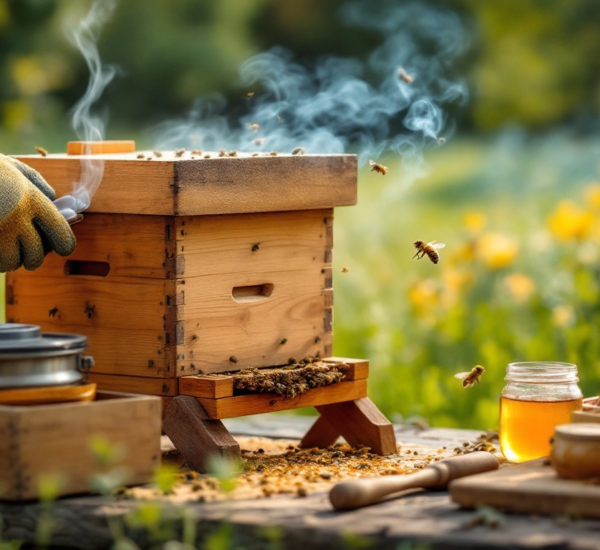As urban dwellers grow more interested in sustainable living, beekeeping has become a popular hobby even in the smallest urban environments. This guide will walk you through everything you need to know about urban beekeeping in small spaces.
Table of Contents
- Introduction
- Why Urban Beekeeping?
- Essential Equipment for Small Spaces
- Choosing the Right Bees
- Designing Your Space Efficiently
- Maintaining Your Hives
- Conclusion
- FAQ
Introduction
Urban beekeeping offers the dual benefits of environmental stewardship and personal enrichment, all while fitting comfortably into tight city living spaces. Whether you are a beginner plunging into hobbyist beekeeping or a seasoned apiarist looking to adapt your practice to an urban setting, this guide is tailored for you.
In this article, you’ll discover the why and how of beekeeping in urban landscapes, from understanding equipment essentials to managing bee health and productivity in confined spaces. Stick with us as we unravel the nuances of keeping these vital pollinators in our concrete jungles.
Why Urban Beekeeping?
With the decline in bee populations worldwide, urban beekeeping provides a solution that benefits both humans and the environment. Bees are crucial pollinators, and maintaining healthy hives in an urban setting can foster local biodiversity.
Benefits of Urban Beekeeping
- Ecological Benefits: Urban beekeeping supports local flora through effective pollination.
- Personal Satisfaction: Engage in a rewarding hobby that also produces honey.
- Community Contribution: Resilient urban ecosystems enhance food production capacity.
Essential Equipment for Small Spaces
When beekeeping in limited spaces, the right equipment is vital. Here are the essentials you need to get started:
Beekeeping Supplies
- Compact Hives: Look for vertical hives like the Langstroth or Warre, which utilize space efficiently.
- Protective Gear: Ensure safety with veils, gloves, and bee suits, especially crucial in tight quarters.
- Basic Tools: Hive tools, smokers, and feeders are must-have items to maintain your bee colony.
Choosing the Right Bees
Your choice of bee species will significantly impact the success of your urban beekeeping venture. Consider the following factors when selecting bees for your small space:
Popular Bee Species
- Italian Bees: Known for being gentle and highly productive, ideal for beginners.
- Carniolan Bees: Adapt well to varying climates and display strong stinging instincts, making them hardy in urban settings.
Research and select bees that align with your personal goals and local climate conditions to ensure a thriving hive.
Designing Your Space Efficiently
Even with limited space, strategic planning allows for successful urban beekeeping. Here’s how you can maximize efficiency:
Spatial Considerations
Choose a rooftop, balcony, or compact garden corner where hives receive ample sunlight and are shielded from strong winds. Be mindful of local regulations to ensure compliance.
Maintaining Your Hives
Regular hive maintenance is crucial to the sustained health of your bees. Some maintenance tips include:
Scheduling Inspections
Conduct bi-weekly inspections to identify any issues early, ensuring you’re proactive about pest control, disease management, and hive productivity.
Monitoring Bee Health
Keep an eye on brood patterns, food supply levels, and queen performance. Consider supplementing feed during colder months to maintain hive vitality.
Conclusion
Urban beekeeping not only enriches city life but also bolsters dwindling bee populations crucial for our ecosystems. With the right practices, even the smallest spaces can support successful beekeeping endeavors. We encourage you to dive into this rewarding hobby with the resources and community support available to urban apiarists.
Ready to transform your urban setting into a bee haven? Contact us for questions or further guidance!
FAQ
Is it legal to keep bees in the city?
Urban beekeeping laws vary by location, so check your local ordinances for specific regulations.
Do urban bees produce enough honey?
Yes, urban beehives can produce a comparable amount of honey to rural hives, depending on the availability of forage and nectar sources.
How do neighbors react to urban beekeeping?
Most neighbors are supportive, especially when safety measures are explained and hives are unobtrusive.




